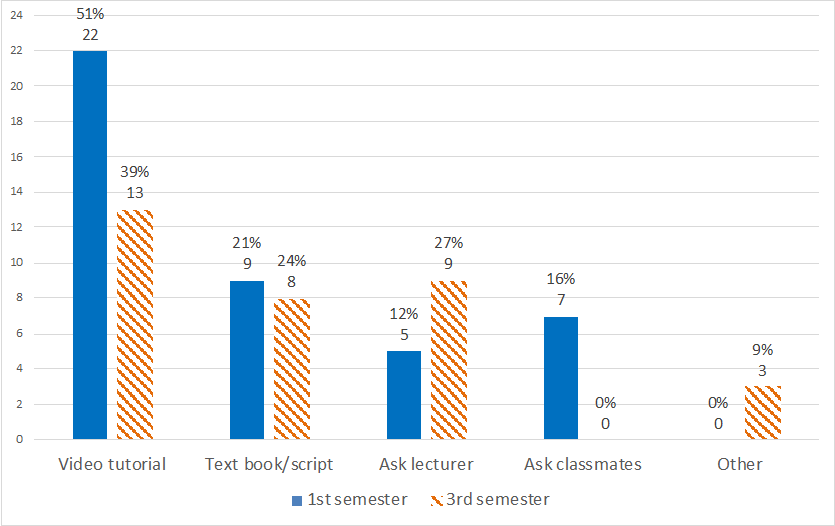Video Tutorials and Teaching Academic Writing Skills

Many studies have made claims for the positive effects of multimedia in education. However, there is a lack of systematic and comparable research, especially when it comes to video tutorials. A study conducted at FHNW evaluates the use and benefits of short screencast video tutorials. Tutorials were produced with Camtasia and published on YouTube, in preparing students for research-based writing assignments.
The study employs a multi-method research design. It comprises an analysis of video-tutorial viewership data from YouTube and a student questionnaire on the perceived benefits of these video tutorials. User data as well as the questionnaire responses enable us to highlight which aspects of these tutorials positively affect the learning process. And importantly, how such tutorials should be adapted to be more useful.
Findings indicate that the use of such tutorials is more dependent on the type of information included (e.g., theory, instructions or examples), than their length (within the range of three to six minutes). Additionally, novice, introductory-level students appear to have received greater benefit from the tutorials than students with some previous academic writing experience.
To better understand if and how video tutorials provide support for the students’ learning process we took a dual approach.
- Analysing user retention data on YouTube
- 135 students in the programme International Management at School of Business (FHNW) received a survey, 76 students took the survey (43 first-semester and 33 third-semester students)
The first questions in the survey were about students’ general use of tutorials in order to understand their general preferences. Results show that 50% of the first and third semester students surveyed turn to video tutorials on a weekly or monthly basis. In contrast, 42% of the first-semester students and 36% of the third-semester students only rarely use video tutorials.

Note. The y-axis displays the number of responses in absolute numbers.
We were also interested in these students’ preferred method of gaining additional course-related knowledge. Figure 1 illustrates two apparent differences in the first and third-semester students.
- 51% of first semester students showed preference for video tutorials compared to 39% of third semester students.
- 27% of third semester students preferred asking a lecturer compared to only 12% of first semester students.
- First semester students were also more likely to ask a classmate than the third-semester students.
While the research adds to the existing research on video tutorials, due to a small sample size and context-specific research setting, we cannot generalize beyond the current research context. However, the study brings together a wide range of literature and provides new insights on the use and usefulness of video tutorials when teaching academic writing and research skills.
For detailed results of this study and the related theoretical framework see: Staley, L., Goeldi, S. & Nikoulina, Anna (2020). Video Tutorials as Academic Writing and Research Support for Students of International Business. Journal of Academic Writing, Vol. 11, No 1.
Comments
No comment posted about Video Tutorials and Teaching Academic Writing Skills